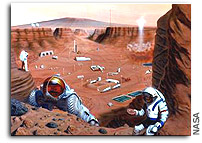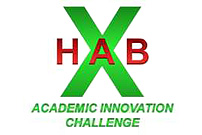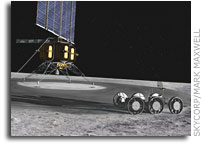E
EarthlingX
Guest
Re: Space prizes (Centennial Challenges): new competitions soon!
http://www.spaceref.com : NASA Announces Three New Centennial Challenges
http://www.nasa.gov : NASA Chief Technologist Hosts Forum to Discuss New Space Technology Programs
http://www.spaceref.com : NASA Announces Three New Centennial Challenges
PRESS RELEASE
Date Released: Tuesday, July 13, 2010
Source: NASA HQ
WASHINGTON -- NASA announced three new Centennial Challenges Tuesday, with an overall prize purse of $5 million. NASA's Centennial Challenges are prize competitions for technological achievements by independent teams who work without government funding.
"NASA sponsors prize competitions because the agency believes student teams, private companies of all sizes and citizen-inventors can provide creative solutions to problems of interest to NASA and the nation," said Bobby Braun, the agency's chief technologist. "Prize competitions are a proven way to foster technological competitiveness, new industries and innovation across America."
The Nano-Satellite Launch Challenge is to place a small satellite into Earth orbit, twice in one week, with a prize of $2 million. The goals of this challenge are to stimulate innovations in low-cost launch technology and encourage creation of commercial nano-satellite delivery services.
The Night Rover Challenge is to demonstrate a solar-powered exploration vehicle that can operate in darkness using its own stored energy. The prize purse is $1.5 million. The objective is to stimulate innovations in energy storage technologies of value in extreme space environments, such as the surface of the moon, or for electric vehicles and renewable energy systems on Earth.
The Sample Return Robot Challenge is to demonstrate a robot that can locate and retrieve geologic samples from wide and varied terrain without human control. This challenge has a prize purse of $1.5 million. The objectives are to encourage innovations in automatic navigation and robotic manipulator technologies.
http://www.nasa.gov : NASA Chief Technologist Hosts Forum to Discuss New Space Technology Programs
NASA’s Office of the Chief Technologist will host a Space Technology Industry Forum at the University of Maryland on July 13-14 to discuss the agency's proposed new space technology investments. The event will focus on the President’s fiscal year 2011 budget for NASA's new Space Technology Programs. Representatives from industry, academia, and the federal government are invited to learn the latest plans for these programs and discuss strategy, development, and implementation of these broadly applicable technology development activities.







